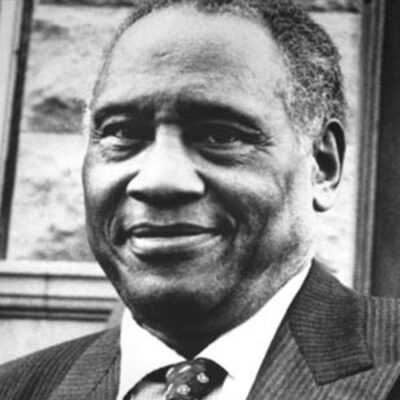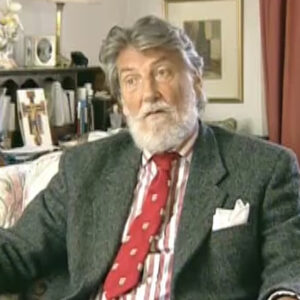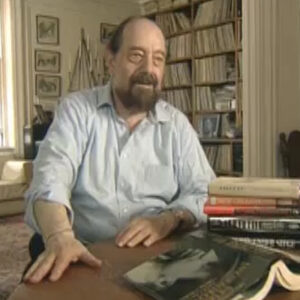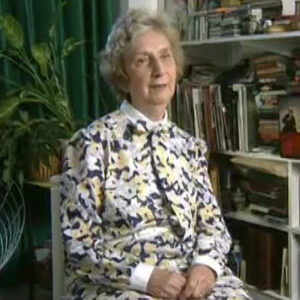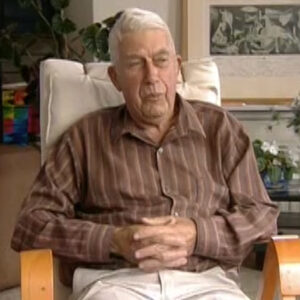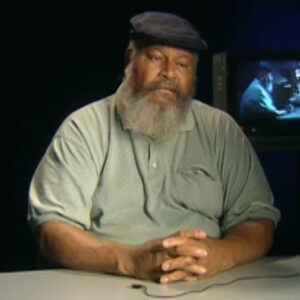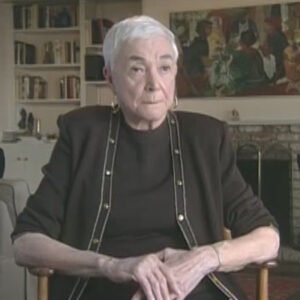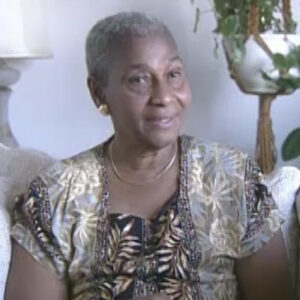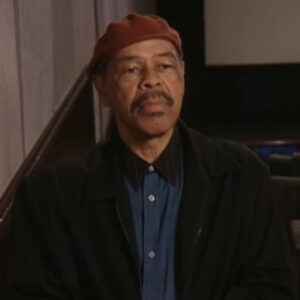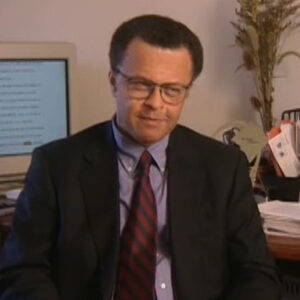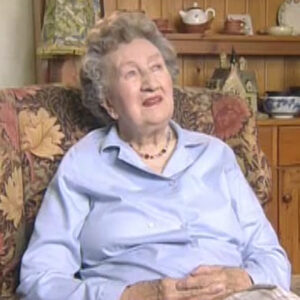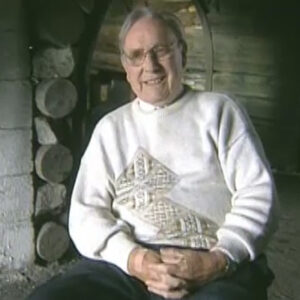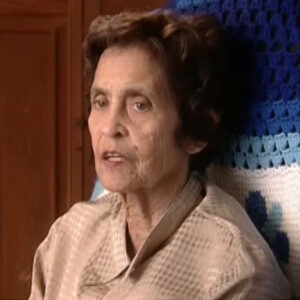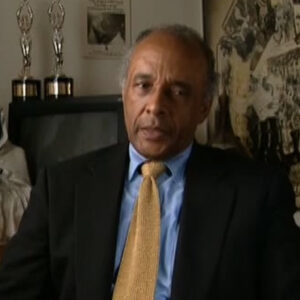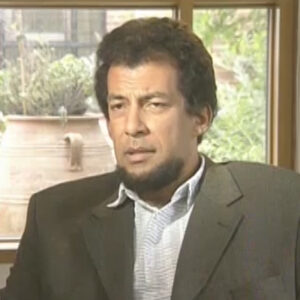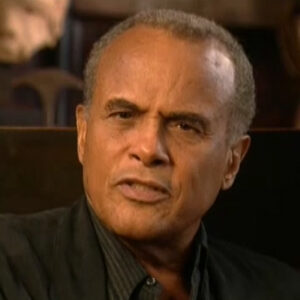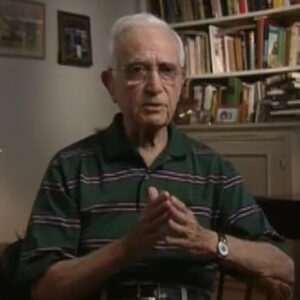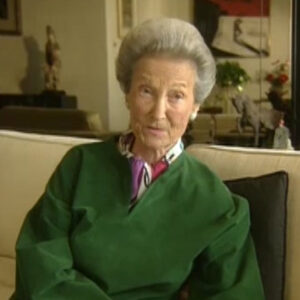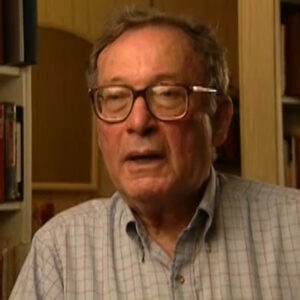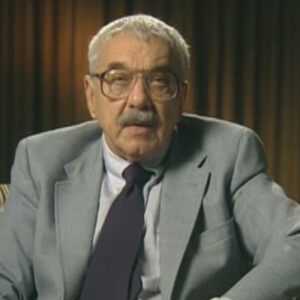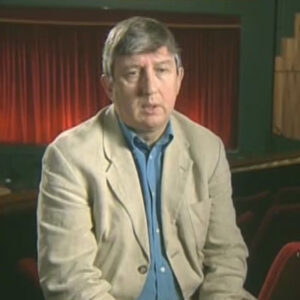Speaker I’m the fourth generation in Princeton. Yeah, so obviously you like it.
Speaker Do I like it? Well, I like Princeton. Yeah, I’ve been away from Princeton for quite a while. I left when I finished college and I came back about I came back in 81. I was like a decision or it was decision to come back after I said I’d never come back to Princeton.
Speaker Yeah, OK. Yeah.
Speaker So the polls say you do what you study. Was it pleasant or unpleasant?
Speaker I mean, it was pleasant for him when he was younger because he was here until he was here until 1987. So he was still a youngster. So and he remembers how kind people in the community were to him and his cousins, the Caraways, than the cousins who were here. So it was and I think he realized what a segregated Jim Crow town Princeton was when he got older and came back, what his father experienced, Jim Crow ism here in Princeton.
Speaker Yeah. Didn’t you give an example? What could an average black person experience in Princeton at the time Paul was here? What was it like?
Speaker Well, there were a lot of places they could not go in Princeton. I can tell you from my perspective, growing up, there were restaurants we could not go to.
Speaker There were segregated sections in Princeton, for instance, the section where I live in was just black and Italians. Blacks came here. Not all of them came as slaves. Some came here to find jobs at the university. Italians came here because they were stonecutters for the university. And there was one section that we lived in. It doesn’t mean that All Blacks were in that section, but some of them lived on different streets in Princeton. But there was an area that used to be called African Alley, where most of the blacks lived. And that’s the area where I live today.
Speaker And during calls, can’t we also take the heat off?
Speaker OK, all right. OK. OK, ok. OK, so so.
Speaker So this Aboriginality was that that existed during Paul’s time, existed before Paul Robeson, when blacks had come here and settled and still existed before. Yes. African Ali existed before. And it was mainly along Witherspoon Street. And that was given that name because when blacks came to Princeton, that’s mostly where they lived, which would be along Witherspoon Street now.
Speaker Yes. That’s a traditional black community, basically.
Speaker Yes, it is a black community. Well, if you look now, it’s not a black community because there’s so many other nationalities that have moved into our community. When I was growing up, it was basically what we call a colored community.
Speaker Do you know could you tell me why Paul and his father left and we lived through it all is different.
Speaker Well, his father was minister at Wetherspoon Street Presbyterian Church, which is also called the First Presbyterian Church for Colored. And it was changed. The name was changed by the trustees in 1970 with this Wall Street Presbyterian Church. He started pastoring at the church in eighteen ninety seven and he was there until 1981.
Speaker It doesn’t really say why he left, but there was a dispute with the presbytery. And what I feel is that he had just become what they would call to militant because he was for the rights of the Negro. And he did a lot in the community for the rights of the Negro. And being a Negro minister, they expected him to to follow the presbytery law. So I think that the dispute with the presbytery was one of the reasons why he left.
Speaker And there was also members of the church who probably disagreed with the way he was preaching at that time.
Speaker And these people who disagreed with a black. Yes, because Presbyterians are just so emotion.
Speaker There was no emotional services at that time. And I think that Reverend Robertson was was quite emotional as a minister and it probably was not in agreement with some of the parishioners say, you know, we never heard. Yeah. In fact, when he left Princeton, he became a Methodist minister.
Speaker So he left the Presbyterian faith altogether.
Speaker I think it was because of his style of preaching. It could have been. Yes. Yeah. So now but while he was here, it was just this is where his wife died.
Speaker And Reverend Rose.
Speaker Yes. His wife died actually after he was minister, because when he stopped, when he was no longer Minister Witherspoon, he moved from the home on Witherspoon Street to a home on Green Street and his wife’s garment caught on fire. And she actually didn’t die at that time. She lived for a while, but she had suffered a lot from a lot of medical problems. And she died there.
Speaker Yeah, it said that he was really, you know, shattered about that, but very much so, yes.
Speaker Paul, did your research do you get a sense that Paul was emotionally traumatized by that? I’m sure he was.
Speaker Yeah, because he was left and his brother Ben was left to live with his father. And actually his father became a hakman, which is like a garbage man. And he he collected garbage from the university. And he had he didn’t have a lot of money. So he was always trying to get money to keep the family going. His other children had left. So it was just Paul and Ben and they moved with him to Westfield after they left Princeton.
Speaker I’m wondering if the loss because, you know, as Paul’s wife was my mother.
Speaker Yes. You know, I wanted to do some connection. Right.
Speaker OK, so did I ask you to tell me what the community was like when Paul was there? Mm hmm. OK. OK, so you’re smarter than I am right now.
Speaker Do you want me to repeat that? Would you? Oh, well, the community was basically all black. Well, they were called colored then, you know, and while we were cockblock that the community was all black, there were places that blacks could not go. But there were a lot of they were rich in tradition.
Speaker And the jobs that the people had, where there were Hackman’s, there were people who worked at the university. There were many servants, but there were also teachers and lawyers and business persons and blacks owned a lot of.
Speaker Business at that time and a lot of land, so there was a wide variety of class, right? Exactly, yeah.
Speaker When tell me what was in your research?
Speaker How did how I was cause I was palls growing up, period, when he left Princeton, where did he go?
Speaker And when they left Princeton, he went to Westfield and his father became a minister in an AME church. And then from Westfield, they moved to Somerville and that’s when he went to high school and his father preached at a Methodist church in Summerville also.
Speaker Do you have any family or does your family have any connections to Paul Robeson? Yes.
Speaker Could you tell me about OK, when Paul Robeson was in primary school in the School for Colored Children in Princeton, my grandmother taught him and when he came back to Princeton, he would come and visit my grandmother. And I remember him coming to our home and telling me stories. And I just remember this exuberant voice. But I was too young to know who this man was. I just know it was he he just told these wonderful stories and he had this very deep voice.
Speaker But he used to come back a lot and we would visit the people that taught him and the people that meant a lot to him, that the people from Princeton and the people from Somerville, they have a good feeling about Paul as he began to achieve.
Speaker OK, Rob.
Speaker All right, let me ask you this, the the what did Paul what kind of feelings did Paul have about this once he left and then came back?
Speaker I mean, did he and you said that he he was nurtured by name, right?
Speaker Yes. But then he realized later that it was a rough but that there was a segregated society.
Speaker And he he always knew that it was a segregated society.
Speaker He lived in a segregated society in Princeton. And he was very bitter about that, about the Jim Crow ism and how he how his father was treated here by the Presbyterian, by the the community other than the the black the white community. And I guess a lot of that bitterness was shown later on when he came back and a lot in the writings about him. But when he was younger, the bitterness was not there because.
Speaker There were so many people that nurtured him, you know, but certainly when he got older and came back, that’s when he really felt how Jim Crowism, Princeton was the two people now in Princeton.
Speaker Yeah. What’s the feeling about Paul Robeson? I mean, especially in this year?
Speaker Well, in this year, they all embraced Paul Robeson because they knew what a great man he was when we had the week long celebration. There were many people who came from all over the United States and foreign countries to come to celebrate the one 100th anniversary.
Speaker And what was your role in the celebration?
Speaker Well, I was on the committee to to get the events together.
Speaker My role was a Wednesday evening at Witherspoon Street Presbyterian Church when his granddaughter, Susan Robeson, came to speak and the choir sang.
Speaker And Susan spoke about not too much about her grandfather, but just about her feelings.
Speaker What are your feelings about her voice? I mean, I know everybody is a great man, but as a as a long time resident and, you know, your family got a lot of roots here.
Speaker Do you think the ropes and the fact that you grew up here, do you think it made a difference in the town?
Speaker No, I don’t think it made it clear that, you know, you’re going to be OK.
Speaker All right.
Speaker Yeah. Give me an idea of what he said.
Speaker What was what what really specifically was the bitterness caused by you about the bitterness was because of Jim Crow ism.
Speaker But there’s a misnomer that he was bitter because he couldn’t go to high school or college here. He left when he was just in primary grades. So his his high school years were in Somerville. And when he went to college, he went to Rutgers. Now, whether or not he tried to get into Princeton, I don’t know. But he was not here. He was not old enough to even consider going to high school or to college when he was living in Princeton. And the bitterness, as I said before, came because of Jim Crowism and the way his father was treated. You know, he he he he dearly loved his father. And he used to sit in the in the pews at Witherspoon Street Presbyterian Church and listen to his father give those eloquent sermons. But that’s where the bitterness came in, because the way he was treated but certainly he was not upset with not going to high school here because he wasn’t even old enough to go to high school and researching.
Speaker Were there any other myths that you’d come across that, you know, people think that happened about him or such as like somebody said, well, he he never came back to Princeton and he never did anything for the people because he didn’t like that is not true.
Speaker He did come back to Princeton because it came back to visit people who cared about him and people that he cared about. He I know he came back to Princeton because he came to visit my grandmother.
Speaker Another myth was that people here were bitterly disappointed when he gave up law and became a country singer.
Speaker I don’t I don’t know that. Yeah, we heard that.
Speaker OK, you know, I don’t I know that I read that people were upset. I don’t know if they were that upset just in Princeton. But I did know that they were upset that he didn’t continue his his law practice. But I don’t know if people in Princeton were that upset. See, people.
Speaker There’s no one here now who really could talk to you about Paul Robeson. There are people who could talk about his brother Ben because they remember him. But the people who are alive now don’t really remember Paul Robeson. So there’s not, you know, the influence about whether or not they wanted him to be a lawyer. I don’t know that.
Speaker I sort to ask you before about your feeling about whether Paul really influenced Princeton to speak.
Speaker What do you think?
Speaker Well, after his one hundredth anniversary, his one 100th birthday, I’m sure there’s an influence because people are more aware of Paul Robeson. We always grew up talking about Paul Robeson, but it was more in the limelight and we cared more about his life after we had his one 100th birthday celebration.
Speaker In your reissuance in your research, did you find that people were what was the reaction of people when, you know, the 50s when the Red Scare and the communist scare came in, he was harassed by the government? What was the what was the reaction of the black community and what was the reaction of the larger community?
Speaker You know, actually, there was there was no reaction that I know of.
Speaker There probably was reaction, but I don’t know that well. No one ever talked about that. You know, it was kind of no one ever talked about the trials of Paul Robeson went through. It’s just that Paul Robeson went to the School for Colored Children. Paul Robeson would come back and his father was a minister at our church. But not too many people that I know of or that I was around talked about his his trials and tribulations. Really? Yeah.
Speaker You know, that’s why they do so well.
Speaker They may have, but I didn’t come across people talking about it and then talking to people about it.
Speaker They didn’t even mention it.
Speaker No, not the people that I talked with.
Speaker You know, there’s been maybe it’s still, you know, a sacred cow.
Speaker Maybe it still is. I don’t think too many people in Princeton talk about the trials and tribulations. They talk about the joyous times that they remember with Paul and the fact that his father was a minister here for 21 years. But I haven’t heard too many people in Princeton that anyone that I know of who’s talked about his trials and tribulations, it’s mostly people from the outside who’ve written the books about him.
Speaker Why do you think that is? You know, I have no idea.
Speaker I don’t know, it’s coming out, more people are talking more about him because people realize what a great man he was.
Speaker But in my growing up, I don’t remember hearing about the trials and tribulations that Paul Robeson went through.
Speaker Um. Well, he was apparently his girlfriend, so I was well, being as young as he was, I guess not unless they had a little puppy love know, um.
Speaker Let me just get a little more details, if you can, about black life and in Princeton.
Speaker The.
Speaker You said people came from some some black people came from jobs, where do they come from? They came from the south.
Speaker The there were blacks who came with the students from Princeton University who came from the south. There were slaves who came. There were people who came from the south for better jobs. There were people who came because their relatives were here. As I said, it’s a misnomer that all of the people who came to Princeton were slaves because they were not. There were educated people who came. There were people who came because we have four black churches in Princeton. So they came because the ministers were here or because their relatives had come.
Speaker Was this a fairly healthy black? Yes, it was a very healthy black community. And varied. Yes.
Speaker Varied according to occupation, according to their thoughts.
Speaker Were there any radical types, Cumani?
Speaker Probably a lot of radical types, yeah, but, you know, it’s it’s like Paul Wilson’s father.
Speaker I think that if I were to use a term, maybe he he was becoming radical. And that’s probably one of the reasons why he was dismissed from the Presbyterian Church.
Speaker But people kind of kept their place as colored and Negro in Princeton. So you didn’t hear too much about the rebels?
Speaker Yeah, and those did go down like Paul Senior.
Speaker I don’t know if they got kicked out of the town, but they were, you know, just. Yeah.
Speaker One last thing. What’s your personal feeling? This?
Speaker Well, I think he’s a great man. I think he has given great service to our to our community and to our country. He’s made us think a lot. He’s made us realize that we have still have a long way to go.
Speaker OK, let me see this sort of second verse. I mean, could you talk about that? OK. OK. Yeah, you could use more information about the church with this street.
Speaker Presbyterian Church was once called Witherspoon Street Church for Colored People. It was said that there was a fire at the first church, the first church on Nassau Street, which is now Nassau Street Presbyterian Church, Nassau Presbyterian Church. There was a fire in the gallery. The gallery is where the slaves worshipped. They didn’t remove themselves from the first church because of the fire. They removed themselves because they wanted to start their own church. And the church, as they said, was started down the street from Nassau on Wetherspoon Street. The date given is 19th is 1840 as the date that the church had his first communion. But the church really started around 1937.
Speaker Paul Robinson’s father, Reverend Drew Robson, was not the first Negro minister there was. The first Negro minister was Hugh Brown. But he was and what they call a supply minister. Reverend Robertson was the minister from eighteen nineties 1979 to 1991.
Speaker You said, what did you give me the date when it started? You said it actually started when? 1840.
Speaker OK, I mean.
Speaker When she said what you said before, the actual you said the first communion record was for yes, 19 percent say, oh, 1837.
Speaker OK. Oh, you want to read that again? Yes. What do you want to do that again. Yeah, yeah. Yeah. OK, is it on their word.
Speaker OK.
Speaker The church started in 1940 and that’s the date given because.
Speaker Oh Jesus.
Speaker OK, ok. Ready.
Speaker OK, we’re starting from that. Go back to Massol. You want to splice that kind of thing. OK, this will be the pictures. OK.
Speaker OK the the first the church started around 1930s 1837. But now 1840 is the date given because it was the first communion. The name was changed to Wetherspoon Street Presbyterian Church by the trustees in 1937. It was formerly known as the School School for the Oak.
Speaker Where do I start before we start with the 1837 be OK?
Speaker When the people when the Negro community started the church on Witherspoon Street, it was started in 1837, the first communion was in 1840, and that’s the date given as the beginning of our church.
Speaker OK, what I want to know is, do you know how Reverend Wilson got to be appointed and wanted to apply for Reverend Robes?
Speaker And Reverend Drew Robeson escaped from slavery and came to Pennsylvania.
Speaker And he he worked for a while for the union army and then he went to Lincoln University. Now, Lincoln University was was then called Ashmont Institute, and it was set up to teach black men to be ministers, some to stick to minister in the United States, others to go to Africa, to minister Reverend Robes. And before he came to Princeton, was a pastor in Wilkesboro, Pennsylvania.
Speaker And then the presbytery commissioned him to come to Witherspoon Church. And that’s how he got to Witherspoon.
Speaker OK, good. I was wondering and he said, OK, when did he meet his wife?
Speaker He met his wife while he was at Lincoln University.
Speaker Yeah. OK, yes.
Speaker Demitri Princeton Cemetery was established in the late seventeen hundreds and there is a colored section of the cemetery which is further down Wetherspoon St. Paul. Robeson’s father wanted his wife to be buried so that his so that she faced his home on Wetherspoon Street. If you look at the cemetery, there’s a road that goes down from Wetherspoon Street and he must have gotten permission maybe from the presbytery because she was the only one who was buried in what is considered the white section of the cemetery. So when he died, they also buried him there. And there was a tombstone that was put on later in later years. But if you look where he where both of them are buried and look straight down that road, you look right at the home where he lived while he was the minister.
Speaker Wetherspoon in the white section. Yes. Even in death, he was. I mean, that this father was, you know, uh, forging the ground, you know? Yeah, that’s exactly right. Yeah. Uh, is there anything you want to say just in general about. You know, you work on this project and you think it will affect the kind of young people, do they have they have an idea.
Speaker They have an idea because I tell them all the time.
Speaker And not only do I am I working on the history of the church, I’m also a trustee on the Historical Society of Princeton. So and we have started a walking tour of the African-American community, which is very important because there’s so many sites, none of them yet have become historical sites, but there’s so many sites that are important to us as a people and to the the nation, because not only that Paul Robeson was here, but there have been so many other noted people who have come from Princeton. So I have a vested interest in the history of the African-American community.
Speaker But the fact is, it has so much later anyway. And when they haven’t had the programs in place come about the St.. OK, I find it easier.
Speaker Paul Robeson plays as it is now, was originally Jackson Street and Jackson Street sort of started the where African-Americans live from Jackson Street down to Birch Avenue when Jackson Street was torn down because of urban renewal in Princeton, it became Avalon Place and then it was renamed Paul Robeson Place.
Speaker I don’t think there was any dispute to call it. Paul Robeson plays. And the port there is now a place that is the Arts Council of Princeton that has been renamed Paul Robeson Arts Council. It used to be the colored why we had a colored lot of everything because colored people could not go places. So that building that now stands, that is called Paul Robeson Arts Council, was once the colored Y.
Speaker And it’s very interesting. Yeah, that’s true.
Speaker And can I say something if you ask me, those are kind of questions. I know when you ask me things about Paul Robeson, too. I don’t know all of those, but I can tell you about that because I know what.
Speaker Yeah, yeah. It’s just I just want to say. You say. I think I’ve said everything, yeah, so I can talk about the church and the pews.
Speaker Well, you know, the thing that interests me is it seems to me that the people here, the black community, don’t have a sense of history if, in fact, they’re not willing to preserve the buildings that have so much history in it. Right.
Speaker I mean, so I guess it goes back to my question of what impact this Paul Robeson had on the black community here.
Speaker You know, I mean, yeah, I think to some Paul Robeson had a great impact. But you see this. So most of those people who really were interested in Paul Robeson and knew Paul Robeson there, they’re gone. So the younger people know that there is a Paul Robeson and know about Paul Robeson going to Rutgers and Paul Robeson being a football player and a singer. But they really don’t know the essence of Paul Robeson.
Speaker And that’s that’s where our history you know, we have to continue the history with the younger people, let them know that. How do you think your activities will have contributed to that? The activities that we have for his one hundredth birthday that you do?
Speaker Well, what one of the things we’re going to do is to bring it into the schools. And one thing I did as part of Princeton High School, I have a girls group and they did they did his life that was put on the school television that was broadcast throughout Princeton. And this has gotten them started to get interested in Paul Robeson and his legacy and his political life also generally.
Speaker What was the reaction of the kids when you talked to him about it?
Speaker I mean, very enthusiastic. They knew that Paul Robeson was a singer. You know, they knew the basic stuff that everyone knows. But now they know more about his political life and about his feelings and how he really felt about Princeton. And this is black and white. Yes.

